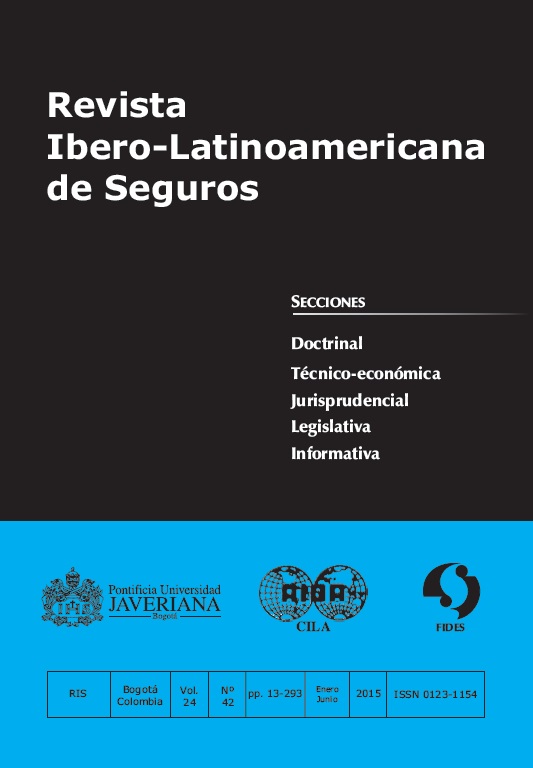Abstract
Este artículo tiene por objeto analizar el interés asegurable como elemento esencial del contrato de seguro de vida. Para el efecto, se ofrece (i) una breve explicación de la importancia del interés asegurable; (ii) una definición de lo que consideramos se debe entender por interés asegurable en este tipo de seguros (concepto), (iii) un análisis del seguro por cuenta en los seguros de vida; y (iv) un estudio de los principales aspectos aledaños al interés asegurable dentro de este marco conceptual, vale decir, (a) el consentimiento del tercero asegurado en la contratación de un seguro de vida sobre su existencia, (b) la ineficacia de pleno derecho producto de (1) la falta de interés asegurable, (2) la falta de consentimiento del tercero sobre cuya existencia el tomador suscribe un seguro de vida, y (3) la contratación de un seguro sobre la vida de un incapaz absoluto, y (c) el valor, la permanencia y la carga de la prueba (onus probandi) del interés asegurable en los seguros de personas; todo esto para, como punto final, proponer una serie de ideas conclusivas de este análisis.
This journal is registered under a Creative Commons Attribution 4.0 International Public License. Thus, this work may be reproduced, distributed, and publicly shared in digital format, as long as the names of the authors and Pontificia Universidad Javeriana are acknowledged. Others are allowed to quote, adapt, transform, auto-archive, republish, and create based on this material, for any purpose (even commercial ones), provided the authorship is duly acknowledged, a link to the original work is provided, and it is specified if changes have been made. Pontificia Universidad Javeriana does not hold the rights of published works and the authors are solely responsible for the contents of their works; they keep the moral, intellectual, privacy, and publicity rights.
Approving the intervention of the work (review, copy-editing, translation, layout) and the following outreach, are granted through an use license and not through an assignment of rights. This means the journal and Pontificia Universidad Javeriana cannot be held responsible for any ethical malpractice by the authors. As a consequence of the protection granted by the use license, the journal is not required to publish recantations or modify information already published, unless the errata stems from the editorial management process. Publishing contents in this journal does not generate royalties for contributors.


